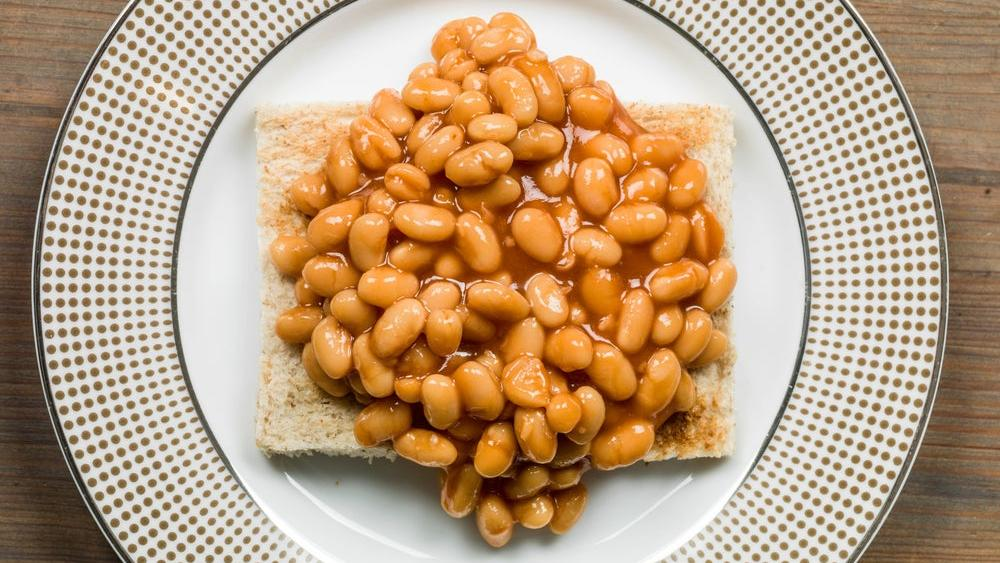The Perfect Food Americans Refuse To Embrace
There are many reasons to enjoy beans, but the U.S. remains slow on the uptake.
We may receive a commission on purchases made from links.
Whenever I start cooking, one of the very first pantry staples I reach for is beans. They're filling, nutritious, and perhaps the most versatile ingredient in my kitchen or anyone else's. I'm a big fan of the canned ones since I can dump them in a pot and season them quickly; if I'm feeling lazy, I can just drain a can and add some directly to a salad.
Despite the endless utility of beans, Vox reports that Americans just aren't anywhere near as keen on them as the rest of the world is. Writer Julieta Cardenas notes that the average person in the U.K. consumes about 12 pounds per person per year, compared to our 7.5 pounds per capita here in the U.S. Beans are cheap, easy, and accessible. Why on earth aren't we eating them by the truckload?
The health benefits of eating beans
There's no doubt about it: Beans are good for us. They contain a significant amount of dietary fiber (gotta keep that system moving) as well as seven of the eight B-vitamins, per the National Library of Medicine, plus good amounts of potassium, iron, zinc, selenium, manganese, copper, magnesium, calcium, and phosphorus.
Given the national fascination with plant-based protein in recent years, beans are among the most valuable sources of it. So it's surprising that we haven't started building a greater proportion of our meals around beans. Except for that one big reason.
To address the gassy elephant in the room, beans can and do make you fart. That's because they contain a sugar called raffinose, which bodies can't always break down easily due to the lack of the necessary digestive enzyme. The raffinose ferments in your large intestine, and a natural byproduct of this fermentation is gas, which has to make it out somehow.
Why Americans eat fewer beans than the rest of the world
Sure, part of Americans' hesitation around beans is the whole farting thing. Taste explains that, unfortunately, our bodies don't magically become more tolerant of the raffinose in beans, no matter how many we eat. But class perception is also an issue at play.
Some Americans view beans as food for poor people—cheap filler to bulk out a meal, inferior to animal proteins like meat. The stigma has deep roots, even though products can range from very cheap canned goods to high-end boutique beans (check out this impressive Rancho Gordo heirloom bean collection). I've seen plenty of fancy bean dishes on fine dining menus in my day.
Beans are also presented to many Americans in a limited context. One place we might encounter them is in prepared canned foods such as syrupy baked beans or sodium-loaded chili, which, while delicious, aren't items a lot of people reach for every day.
But hey, there are plenty of recipes out in the world that use beans to their fullest, and even showcase them as a star ingredient, so there's no reason not to whip out your Instant Pot and start rifling through your pantry for a stray can. We Americans have a lot of catching up to do when it comes to chowing down on this humble little legume.
